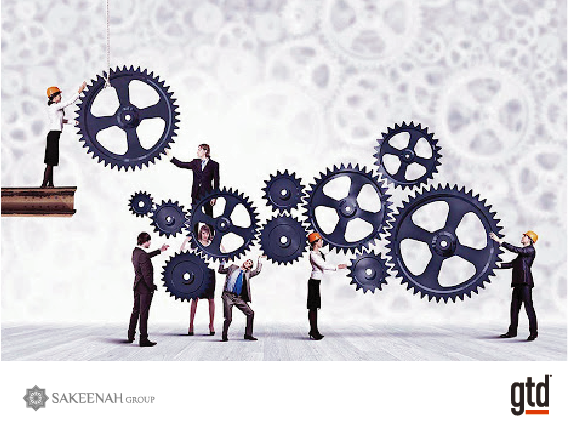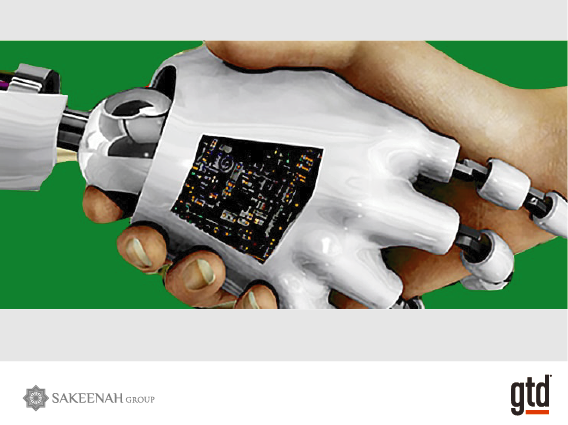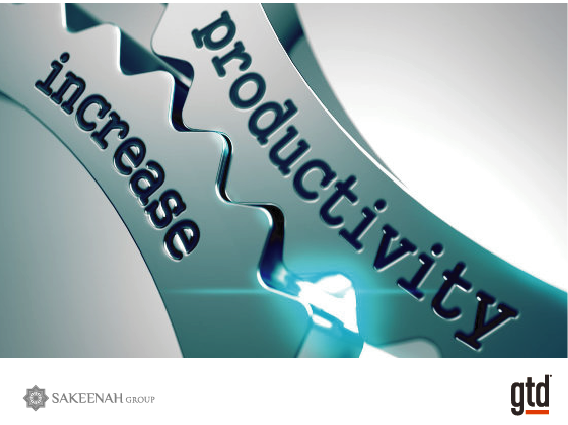The case for putting people first again

The productivity of knowledge workers is coming centre-stage. And it is Covid-19 that is bringing it back into the spotlight. It is not hard to see why, when we see figures like 40 percent of staff globally thinking of leaving their jobs by the end of the year or how just in July this year, 4 million Americans quit their jobs in what has come to be dubbed the ‘Great Resignation’.
Part of the reason for this phenomenon is that productivity training, long under-rated by most businesses globally, is now coming back to bite as knowledge workers are now being asked to juggle multiple tasks and priorities while being increasingly shifted from the office to the home.
WFH means more work

According to some estimates, the end of this year could see up to half of knowledge workers working from home. Yet with this transition in the work place, challenges are being faced globally as businesses have not equipped their knowledge workers to cope with additional pressures or how to define their priorities, key elements to maximize productivity. Within the US for example, a recent survey found that 70 percent of knowledge workers were working on weekends while 45 percent said they were working more than 40 hours each week. It's not that they were working more productively, a lot of that extra time was used responding to emails, attending zoom meetings, chasing up colleagues over the phone or being torn between different tasks at the same time. So it’s no surprise that burned out workers in the US are now looking to quit, a pattern being witnessed in other countries as well such as Australia, where 59.9 percent of knowledge workers say they want to quit their jobs.
Productivity of the knowledge worker

The reason why all these are taking businesses by surprise is that there seems to be a disconnect between how they and their own employees see productivity. In a recent report by PwC, although 44 percent of employers said they found their employees were more productive, just 29 percent of employees thought they were more productive in 2020. There can be two reasons for this divergence: employers confuse ‘panic productivity’, that extra spurt of effort temporarily put in by employees during crises to prevent their getting fired, with sustainable, long-term productivity gains. And second, by neglecting to develop robust productivity training systems within their organizations, businesses are not equipped at measuring the actual productivity of knowledge workers. To be fair, this is an intricate exercise since a knowledge worker in a complex modern economy can be anyone from a doctor or sales manager to a graphic artist or a technician repairing robots. In effect, it means a worker whose job is to ‘think for a living’, dealing in knowledge and information rather than manual labour.
From hunter-gatherer to knowledge worker

In his 2006 book Revolutionary Wealth, Alvin Toffler describes three main phases of economic transition; from hunting-gathering to agriculture, then from agriculture to industrialisation, eventually from industrialisation to knowledge. While the emergence and expansion of knowledge workers have been taking place over the past decades, businesses have been slow to recognize the importance of productivity training for the knowledge worker. This was a problem that pre-dated Covid-19. In 2011, three quarters of knowledge workers in the UK said that a lack of such training was not letting them reach their full potential. That same year a survey of 10,000 knowledge workers in the US found that they felt less productive than a decade ago. By 2018, two in three UK workers said they were quitting because of the lack of such programmes within the companies they worked in. Covid-19 and working from home did not create the problem, it just worsened an already existing shortcoming.
Hard skill versus soft skill training
Aside from Covid-19 laying the problem of the lack of productivity training bare, there is considerable evidence to show that the old bias towards focusing just on technical and educational skills or investments in technology while ignoring productivity training has historically not led to the gains expected. A groundbreaking 2014 study of data from 260 South Korean companies showed that focusing solely on technical/educational skills actually had a negative effect. The companies that privileged only educational/technical skills and paid for their employees to go through such programmes had two effects: those employees that did not get those facilities became resentful which affected their performance within the company and the employees that benefitted from those programmes saw their marketability grow and simply went to work elsewhere. It was great for the individual employee, but the results for the organization as a whole were more mixed.
The penultimate example of the short-sightedness of this approach is the UK. Over the past few decades, the British governments, alarmed by the relatively low productivity of the UK economy have focused exclusively on ‘hard skills’, laying an emphasis solely on developing a range of vocational schools and ensuring that the country’s stock of university graduates goes up. Companies in the UK followed government policy, stressing formal educational qualifications and ‘hard skills’, within their own organizations while ignoring productivity training for their employees. Like the government, companies in the UK assumed that more skills and educational qualifications would lead to a burst of productivity within companies in the UK and the economy as a whole. In a 2006 paper by the Oxford Review of Economic Policy it was found that although the stock of UK university graduates, and the supply of ‘hard skills’, went up by 16 percent over a period of 10 years, the productivity of the UK’s economy as a whole had hardly budged and still trailed other developed countries like Germany, Japan and the US.
This should not come as a surprise to us in Mauritius. We have followed the same dynamic. In 2000, there were 15,317 Mauritians enrolled in tertiary education. This number has grown to 47,398 in 2019. And yet this explosion of ‘hard skills’ available on the job market and to Mauritian companies has not translated into a burst of productivity. Quite the reverse, productivity within the Mauritian economy has actually been going down with average labour productivity declining from 4.1 percent in 2009 to 2.5 percent in 2019, with Mauritius being ranked 45th on the Global Competitiveness Index in 2017, but tumbling down eight places in 2019. Obviously, just paying attention to ‘hard skills’ has not led to the productivity gains we expected.
People or Technology?

For companies that have been investing their money principally in technology rather than the productivity of their staff, the problem is much the same. Since the 1990s, companies around the globe have emphasized investments in capital and technology, moving away from investing in workers and their productivity. That’s because of rising labour costs as compared to the falling costs of machinery or software sourced from foreign manufacturers or outsourcing abroad. Between 2008 and 2011, to take an example, prices of machinery and software in the US went down by 2.4 percent whereas the cost of labour rose by 6.7 percent. The answer was clear: investing in machinery, rather than people was the way to go. If people were less important, so was training them for productivity. Covid-19 did little to dampen such enthusiasm. According to a report by Mckinsey in December 2020, 75 percent of executives in North America and Europe said they expected their investments in new tech to grow over the coming years. That was way more than the 55 percent of executives who said they made such investments between 2014-2019. This of course ignored previous evidence from the US that investing in people did much more for raising productivity than investing in machines. The result of this bias towards investing in technology rather than the right people is the current ‘Great Resignation’.
Examples from India and Chile versus Europe and America

In contrast to the bias towards looking to machinery to boost productivity in the US and Europe, evidence from elsewhere points in the other direction. Looking at key knowledge companies in India such as Ernst&Young, WIPRO Technologies ltd, Central Electronics Ltd and HCL Technologies Ltd, the Tokyo-based Asian Productivity Organization praised these firms for coming up with knowledge management and productivity training strategies for their staff – ‘thinking out of the box’, problem solving, managing daily tasks and coping with stress - that helped them attract and retain the best brains in the country and turning these organizations into market leaders. In Chile, it was found that productivity training in one of the largest retailers in the country helped boost business by as much as 12 percent.
Swadeck Taher OSK is a Chartered Accountant (ICAEW) and a Chartered Marketer (CIM) running businesses and coaching, consulting, mentoring CEOs and entrepreneurs ranging from startups through family businesses to established top 100 companies in Mauritius. He enjoys sharing the expertise he developed over the last thirty years at senior leadership/directorship level with his clients, business partners and other budding entrepreneurs.
Swadeck is also a GTD Practitioner and a Certified GTD Trainer. He helps others experience what the Productive Experience feels like and how they too can savour stress free productivity.
Sakeenah Co Ltd is the only Certified International Partner of the David Allen Company in Mauritius.
GTD® and Getting Things Done® are registered trademarks of the David Allen Company.
Disclaimer: All images are copyright to their respective owners. If any of the images used in this article belongs to you and you wish these removed, please send me a message and I shall oblige.
Explore Our Blog
Discover expert insights, tips, and the latest updates curated just for you.


